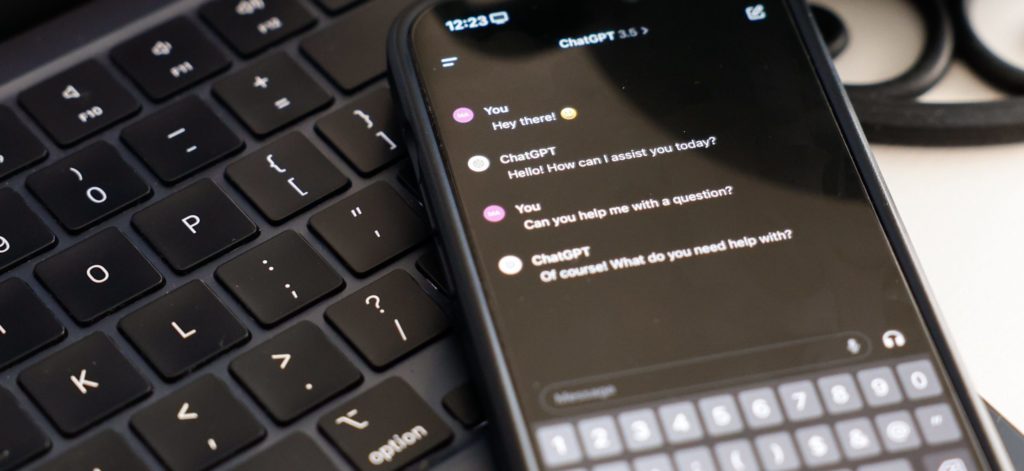Access to vast amounts of data and information is not the same thing as having intelligence, which is uniquely human and requires being open to truth, goodness and the real meaning of life, Pope Leo XIV told AI experts and executives.
"Authentic wisdom has more to do with recognizing the true meaning of life than with the availability of data," he said in a written message released by the Vatican June 20.
"Acknowledging and respecting what is uniquely characteristic of the human person is essential to the discussion of any adequate ethical framework for the governance of AI," he wrote.
The message, written in English, was addressed to people attending the second annual Rome conference on AI, Ethics and the Future of Corporate Governance being held in Rome and at the Vatican June 19-20.
The conference "brings together executives from leading AI companies as well as large enterprises using AI with policymakers, scholars, ethicists and lawyers to consider in a holistic way the challenges facing the ethics and governance of AI, both for companies developing this revolutionary technology as well as the enterprises incorporating AI into their businesses," according to the event's website.
Speakers included representatives from top AI-tech firms such as Google, IBM, Anthropic, Palantir Technologies, Cohere and AI21 Labs. Speakers from the Vatican included: Archbishop Edgar Peña Parra, the substitute for general affairs in the Vatican Secretariat of State; Archbishop Carlo Maria Polvani, secretary of the Dicastery for Culture and Education; Archbishop Vincenzo Paglia, retired president of the Pontifical Academy for Life; and Franciscan Father Paolo Benanti, a member of the U.N. AI committee and a professor of moral theology at Rome's Pontifical Gregorian University.
In his message, Pope Leo said their presence "attests to the urgent need for serious reflection and ongoing discussion on the inherently ethical dimension of AI, as well as its responsible governance."
"Together with its extraordinary potential to benefit the human family, the rapid development of AI also raises deeper questions concerning the proper use of such technology in generating a more authentically just and human global society," he wrote.
He reiterated Pope Francis' definition of AI platforms as "tools," which, he said, reflect "the human intelligence that crafted them and draw much of their ethical force from the intentions of the individuals that wield them."
While "in some cases, AI has been used in positive and indeed noble ways to promote greater equality," he wrote, "there is likewise the possibility of its misuse for selfish gain at the expense of others, or worse, to foment conflict and aggression."
The Catholic Church wishes to contribute to "these pressing questions by stressing above all the need to weigh the ramifications of AI in light of the 'integral development of the human person and society,'" he wrote. That means the material, intellectual and spiritual well-being of the human person must be considered, human dignity must be safeguarded, and the cultural and spiritual riches and diversity of the world’s peoples must be respected.
"Ultimately, the benefits or risks of AI must be evaluated precisely according to this superior ethical criterion," he wrote.
"AI, especially Generative AI, has opened new horizons on many different levels, including enhancing research in healthcare and scientific discovery, but also raises troubling questions on its possible repercussions on humanity's openness to truth and beauty, on our distinctive ability to grasp and process reality," Pope Leo wrote.
He underlined concerns about the possible consequences of AI use on the intellectual and neurological development of children and young people. "Our youth must be helped, and not hindered, in their journey towards maturity and true responsibility," he wrote.
Never before have people had "such quick access to the amount of information now available through AI," he wrote.
"But again, access to data -- however extensive -- must not be confused with intelligence, which necessarily 'involves the person’s openness to the ultimate questions of life and reflects an orientation toward the True and the Good,'" he wrote, citing the Vatican document titled "Antiqua et Nova (ancient and new): Note on the Relationship Between Artificial Intelligence and Human Intelligence," approved by Pope Francis in January.
Pope Leo told participants he hoped the conference would also consider how AI fits in with helping young people connect with older generations and "integrate truth into their moral and spiritual life, thus informing their mature decisions and opening the path towards a world of greater solidarity and unity."
"The task set before you is not easy, but it is one of vital importance," he wrote, thanking them for their efforts.

